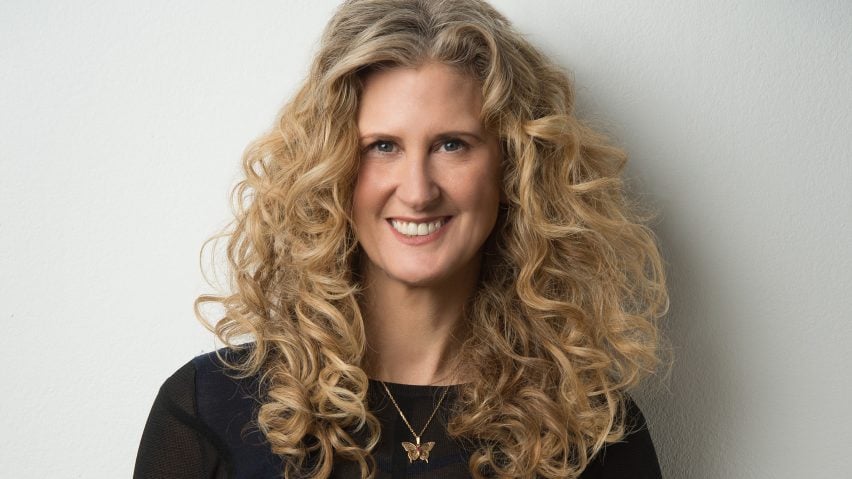
Design can "do some heavy lifting" to help solve global problems, says EDIT festival founder
Design and technology are playing a crucial role in solving global issues and their importance is finally catching the attention of world leaders, according to Shauna Levy, founder of Toronto's EDIT festival.
For the launch of EDIT – Expo for Design Innovation and Technology last month, Canadian prime minister Justin Trudeau recorded a speech that championed how design and technology are "changing the way we live".
This recognition from the government – the first in 25 years – was one of Levy's key objectives for the 10-day festival, during which several politicians were involved in programmed discussions around design.
"The prime minister went on record saying that design matters, and that it's important in terms of solving global challenges," she told Dezeen on the last day of the event. "I've had tons of politicians here all week. We've put them in panel discussions about things around issues like housing."
"It's an opportunity now for design to do some heavy lifting, and to really be a part of issues that matter," she added.
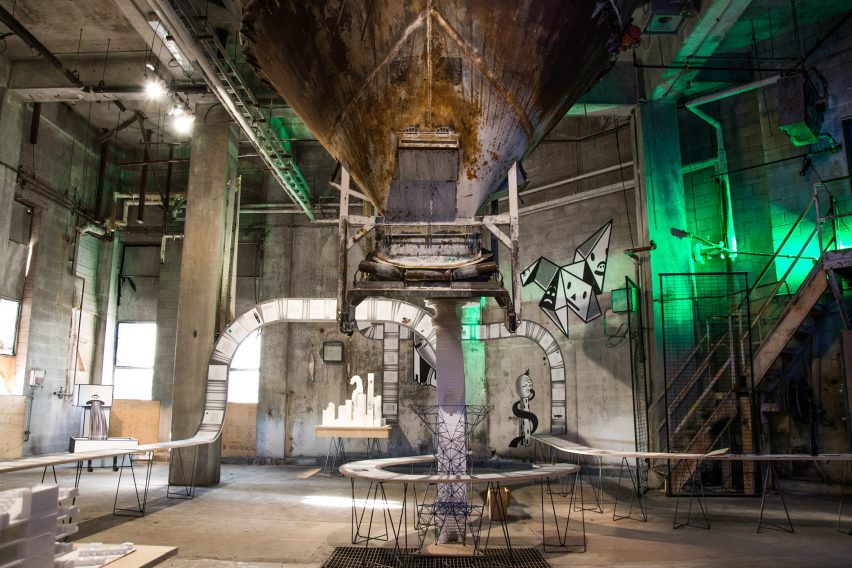
EDIT took place 28 September to 8 October 2017 inside a former soap factory in Toronto, with exhibitions of projects that address international problems like pollution, immigration and gender equality. The creative solutions that were on show prove that design is making a difference, said Levy.
"When we look around the world around us, all we see is doom and gloom and how many problems we have, but actually we are much better off today than we were before," she said. "I would argue that is because of what has been done in the world of design and technology."
"We felt this was an important moment to talk about the great work that's being done."
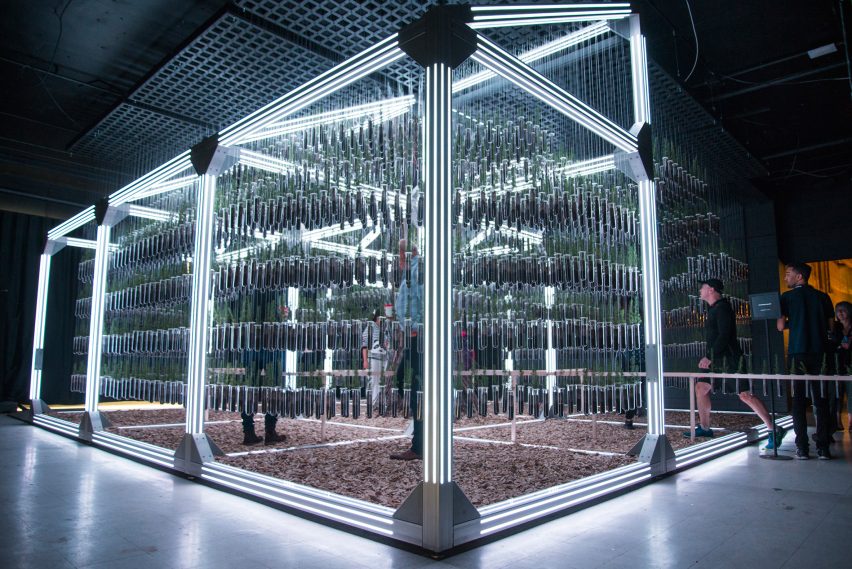
The displays at EDIT were curated under the theme of Prosperity for All, based around the 17 UNDP Sustainable Development Goals – a call to action from the United Nations to end poverty, protect the planet and ensure peace.
Another focus of the event was to communicate these goals, and how design and technology can help to achieve them, to the general public.
"There's enough navel gazing going on, there's enough events and situations where designers are speaking to designers, and not that much will change if you don't engage the public," she said. "It's not just about showing what's happening, but it's hopefully about inspiring people to be part of this movement and be part of this positive change."
"I had a women stop me yesterday in tears saying 'thank you for doing this, it has changed my life'," Levy added.
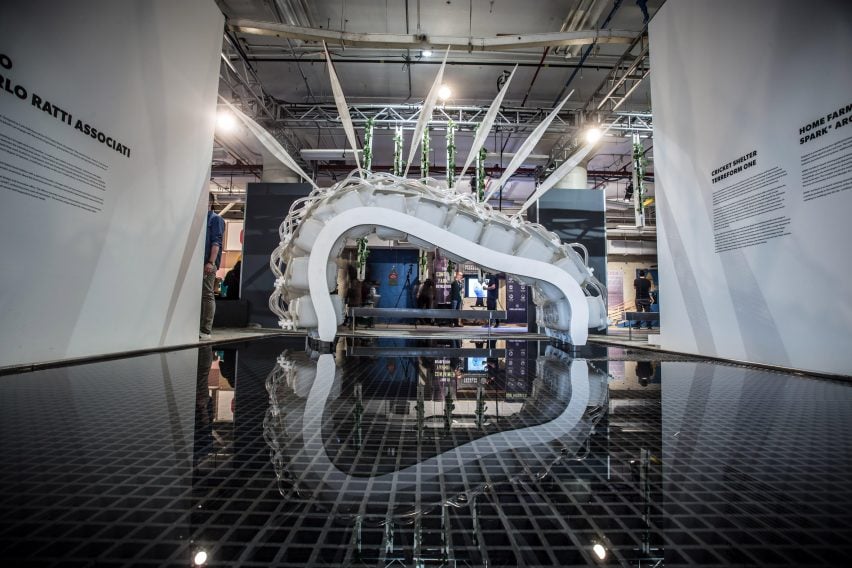
Levy is also the president and CEO of Design Exchange (DX), a Toronto-based non-profit that operates as Canada's Design Museum. She said that the themes and issues raised during EDIT will heavily impact the way the organisation will educate people "about the value and importance of design in everyday life". Her aim is for the festival to become biennial.
EDIT's ethos aligns closely with Dezeen's Good Design for a Bad World initiative, which took place as a series of talks during this year's Dutch Design Week. The discussions similarly highlighted how design can tackle different global issues: politics, pollution, terrorism, climate change and the refugee crisis.
Read on for an edited version of our interview with Shauna Levy:
Dan Howarth: What's the story behind EDIT festival?
Shauna Levy: About six or seven years ago, the [DX] board of directors brought in a consultant from a different brand. There were two recommendations for the plan: one was to be a design museum with programs that had a broad public reach, the second was to launch a design festival.
I was brought in to implement that new plan. The recommendation for a design festival that they had was actually emulating Design Miami, so the idea of course very much being of high-end design. So when I looked at it, I thought, "this isn't the right time, nor the right place". I thought "this is not going to work", and I thought "what could we create that would be important for Toronto, and important for the planet for that matter?"
Dan Howarth: Were you already doing anything similar?
Shauna Levy: At the same time, we had been curating exhibits that had a broad public reach, and one of the exciting opportunities was working with Pharrell Williams. He guest curated for us a show called This Is Not A Toy.
When I asked him why he did it for us pro bono, he said it was because contemporary art often times is alienating, and people feel intimidated about walking into a gallery or museum and standing in front of a piece of art, and they feel stupid because they don't get it. Whereas street art (urban vinyl) is very accessible, and people can enter the art world through that and explore it. That was a very telling moment for me, and he was absolutely correct.
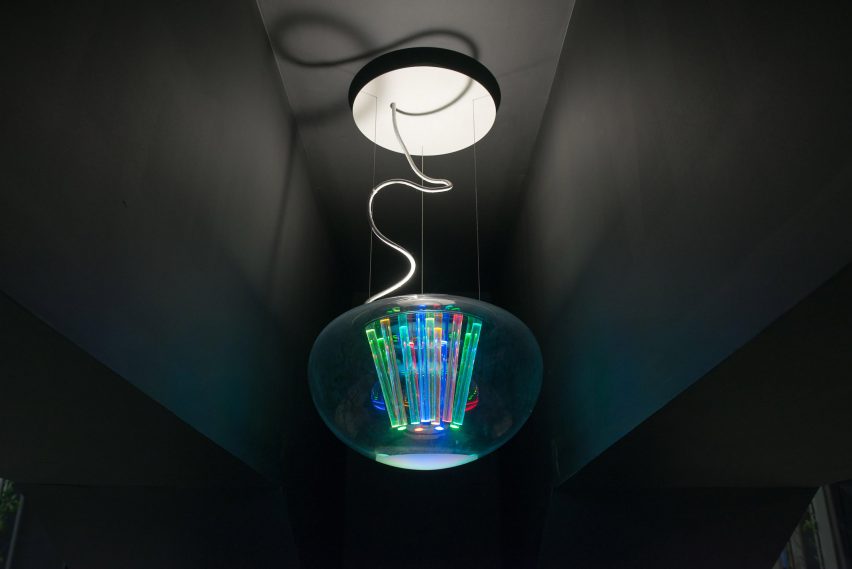
Dan Howarth: So you used this to inform the programming for EDIT?
Shauna Levy: That idea of creating something in a language that most people spoke was very clear to me, and the idea of creating an opportunity that had access. My background is in trade shows and consumer events, and I've been talking about design for many years. It was very much in the context of luxury, and I thought this is an opportunity to talk about it in a whole other way.
At the same time, I became aware of UNDP's sustainable development goals and I saw this great video they did called We The People, and everyone's in it, from Uma Thurman to Kate Blanchet to Steven Hawking. I watched it, and the hair on my arms stood up, because firstly the power of celebrity of course is important, but second – and maybe more important – is the idea of [everyone] working together. But finally, and most relevant to us, to me they were all design challenges.
I immediately contacted the UN in New York and asked them to partner with us, and that's how EDIT came about. EDIT is Expo Design Innovation Technology, which is the acronym, but it also refers to that it's a curated, edited experience.
Dan Howarth: Why is now such an important time for these conversations to be had?
Shauna Levy: Certainly when we look around the world around us, all we see is doom and gloom and how many problems we have. But actually we are much better off today than we were before. I would argue that is because of what has been done in the world of design and technology.
We felt this was an important moment to talk about the great work that's being done. I had a women stop me yesterday in tears saying "thank you for doing this, it has changed my life".
People want to be optimistic and positive, and they want to feel good. Often we walk into cultural experiences, and it's a critique of what's happening, and it's a very negative pallor that's created.
The reality is, we don't have to be negative. There's a lot of reasons to be positive, and we should be talking about the great work that's being done and celebrating the people who are doing it, and that we can all be a part of it.
So it's not just about showing what's happening, but it's hopefully about inspiring people to be part of this movement and be part of this positive change.
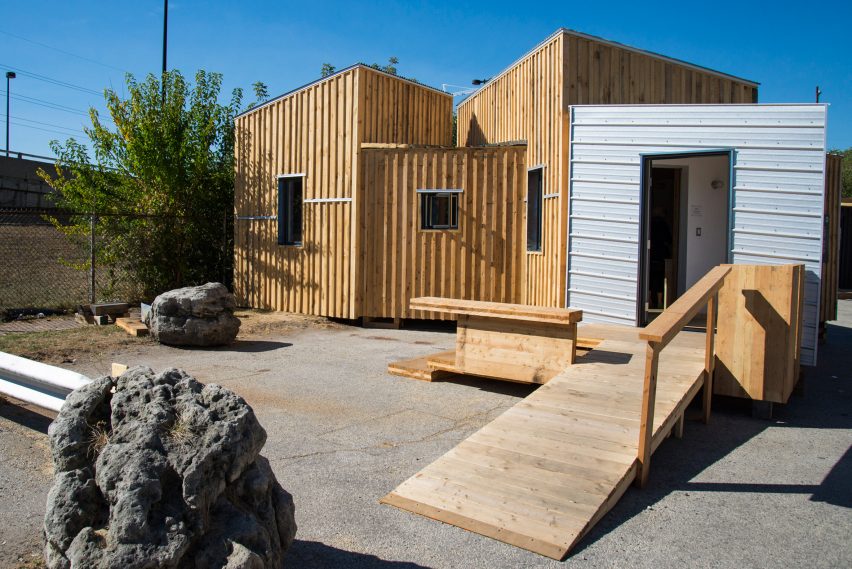
Dan Howarth: You mentioned that when you looked through the UN goals, they were all design challenges. How important is presenting design in this way to the wider public?
Shauna Levy: There's enough navel gazing going on, there's enough events and situations where designers are speaking to designers, and not that much will change if you don't engage the public.
The public is the loudest voice, so the public should be engaged. The audience that is coming is truly a mix of people in the design world and people who aren't. Even that kind of mixture and combination of people can only have a positive effect.
Dan Howarth: What are your goals for the future? How would you like to see it evolve?
Shauna Levy: The plan right now is for EDIT to be biennial, however the Design Exchange is an institution that lives 12 months a year, and so it has, and will, inform the way we approach programming, and the way we educate people about the value and importance of design in everyday life.
And really making sure we're letting people understand that it isn't just about luxury, that it is about important issues. It's an opportunity now for design to do some heavy lifting, and to really be a part of issues that matter.
The prime minister went on record saying that design matters, and that it's important in terms of solving global challenges. I've had tons of politicians here all week. We've put them in panel discussions about things around issues like housing.
I've had designers write me letters in the last week saying thank you for doing this, thank you for broadening the understanding of what design is. It will only continue to benefit all of us. So I just want those conversations to continue.